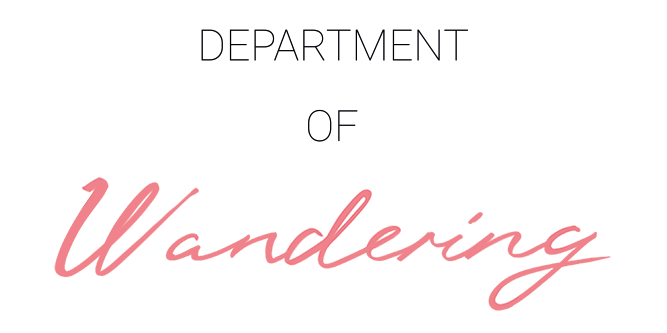
In our culture, we don’t know how to talk about uncomfortable subjects. There’s a pressure to conceal negative feelings because we don’t want to make it awkward. When someone’s grieving, people don’t know what to say, mostly because we don’t talk about hard things enough so we’re all out of practise. Since I had my miscarriage a few weeks ago, I’ve opened up and shared it with family, friends and my wider community through social media and this blog. I did so because I NEEDED to talk about it.
The opening up part has not been difficult for me. Writing and talking about what happened has been cathartic and has helped me process it all. And, in seeking support, I’ve learnt a lot about how we respond to grief. In the past, when confronted with the news that someone I knew was going through something awful, I felt helpless. I mean what do you say? I just didn’t know how to respond. Now that I’m walking in their shoes, I’m realising that a lot of people now feel the same way about me.
Everyone has good intentions of course and I can’t blame anyone for not responding how I needed them to. I know they’re just doing the best they can and it comes from a place of kindness. And I’m so grateful for everyone’s thoughts and wishes because I know a lot of people don’t have any of this.
So, because I’ve been so open about a topic that’s usually only whispered about behind closed doors, I needed to write this post on what NOT to say to someone after a miscarriage too. While everyone deals with their grief in different ways, I think we all need to open up a bit more about what helps and what doesn’t. Otherwise, how will anyone know? There’s no map on how to navigate this stuff.
What NOT to say to someone after a miscarriage:
How are you?
Even though it’s nice to be asked how you are, man, it’s a loaded, heavy question. Almost all of my family and friends asked me this in the weeks after the miscarriage and I just never knew how to answer it. If I answered honestly, I felt like I needed to talk for an hour or two. There are SO many different layers to how I’m doing. But if I opened up, would the person who asked be truly ready for my answer? Did they have the time? When I started talking (and didn’t stop), would they regret that they asked in the first place?
When people asked me this, sometimes I would just shrug and say, ‘I don’t know. Ok I guess,’ even though that wasn’t the whole truth. ‘Ok’ is a shortened, condensed version of the thousand-word essay I felt I needed to write. When I would reply with my neat little answer, people would nod like they got it. But did they? How could they? I hadn’t really even said anything.
Perhaps, the better question is, ‘How are you today?’. Each day is so different to the next. How someone feels today might be totally different to how they felt yesterday. It’s much easier to respond to this instead of the general, all-encompassing ‘How are you?’ question.
And then, just because you’ve checked in to see how they’re doing once doesn’t mean you shouldn’t check in again soon. Grief is an ever-evolving, shape-shifter and it doesn’t go away so easily. Don’t judge someone on how they ‘seem’ one day you see them. It might have been a good day. The next day, however, they might not be able to get out of bed.
Is there anything I can do?
While this is a lovely offer, its openness makes it difficult. For me, it felt like an imposition to actually request something of the person that was asking. Did they really mean it or were they just being nice? If I actually requested something, would I be a burden and would they wish they hadn’t offered in the first place? So most of the time I just said, ‘Thank you, but no’. I didn’t want to inconvenience anyone.
When people asked me this question, what I really wanted to say was, ‘Can you bring me food?’. The thought of planning meals, shopping at the supermarket and cooking just all felt like too much. In the days immediately afterwards, I actually asked this of my mum and my sister and they dropped in, arms full of food. It was helpful to us and I know they also felt like they could do something useful too.
Also, instead of asking the person who is suffering what you can do for them, just go and do something. This way, you take the choice away from them. Send a bottle of wine to their home, surprise them with coffee in the morning at work or take on something from their to-do list. When I saw my best friend the day that we got the news, she was waiting with blocks of chocolate.
You’re not allowed to feel…
A few people have said to me, ‘You must always stay positive,’ and ‘You must always stay hopeful’. Even though they had the best intentions and it came from a place of love, it made me feel upset. Grief is so complex and there are so many layers to it. Sometimes, I felt hundreds of different feelings in a single day. Sometimes I felt negative and sometimes I felt despondent. On other days I was hopeful and excited for the future. I didn’t like to be told how to feel because I needed to feel ALL of it. Every day I need to sit with it and face everything about it. That’s part of the process.
Nothing at all
Saying nothing at all is worse than saying the wrong thing because it makes me feel invisible, like my pain doesn’t matter. But I do understand people that don’t want to say anything because I’ve also been there myself. In the past, before I’d gone through this, I would avoid these awkward conversations. I’d feel overwhelmed by a sense of helplessness, that nothing I could say or do would make it better, so it’s best I avoid the topic altogether. I worried that I might upset the person by reminding them of their pain, by dredging it up.
The thing I’ve realised by going through it myself though is that it’s already right there, bubbling away just under the surface. There was no possible way someone could make me feel worse by referring to it. In actual fact, I felt better when the elephant in the room was acknowledged. I felt cared for and like I had permission to open up if I wanted to.
Other things to say when you don’t know what to say
- ‘I’m thinking of you.’
- ‘I don’t know what will happen next but I’ll be here with you every step of the way.’
- ‘Whatever you’re feeling, you have a right to feel that way.’
- ‘Know that it’s not your fault.’
- ‘F*ck.’
My heart aches for Ben who’s going through all this too but with far less support than I have. Boys aren’t ones to really ask each other about their feelings and I know he hasn’t had too many people checking in with him. I just wish that grief and pregnancy loss were more acknowledged and discussed amongst men.
In the end, I know that everyone’s intentions are good and come from a place of love. Those that haven’t said anything (or said very little) were not trying to create more pain. And those that said the wrong thing or said it in the wrong way were just trying to bring comfort.
For more on my miscarriage, read these posts:
- Miscarriage: A Jumbled Mess of Thoughts and Feelings
- What it’s Like to Have a D&C for a Miscarriage: My Hospital Story
Please let’s be more open about in discussing grief. It will help so many – both the person going through it and those trying to support them.




Thank you for writing this. I just had a D&C yesterday and feel all the things you’ve described. All I feel like doing is reading stories of others so I don’t feel as alone and have hope. I too wish this was talked about more openly. Never in a million years did I think it would happen to me, or that when I found out I was pregnant, that it wouldn’t end with a baby in 9 months, but instead would take us a very different way. It’s been a lot to process. Reading things like your experience and others that have been through the same…It helps keep me in a better head space. Thank you again.
I am so, so sorry to hear you went through this Kate. It’s the most devastating thing. You’re so right, it is very hard to process and it takes a lot of time. Miscarriage is so unbelievably common and you are definitely not alone. Just hold onto the belief that each new day from here on is a day closer to meeting your baby. Big hugs x